Members of the EMBL Australia Council
CHAIR
PROFESSOR IAN SMITH
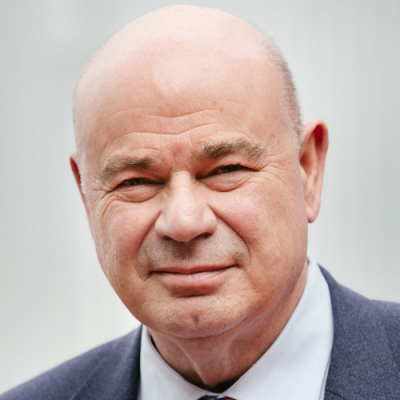 An internationally recognised leader in medical research, Professor Ian Smith has applied proteomics technologies to study proteases involved in brain and cardiovascular function. His research has been published in more than 260 journal articles and book chapters, and has resulted in many patents and changes to clinical practice.
An internationally recognised leader in medical research, Professor Ian Smith has applied proteomics technologies to study proteases involved in brain and cardiovascular function. His research has been published in more than 260 journal articles and book chapters, and has resulted in many patents and changes to clinical practice.
Characterised by his wide engagement with both industry and his academic discipline, Professor Smith has collaborated with the pharmaceutical and biotechnology industries, received regular invitations to speak at international meetings, served on editorial boards of international journals, and is an office bearer in a number of national and international societies and foundations.
Professor Smith stepped down from his role as Vice-Provost (Research and Research Infrastructure) at Monash University at the end of 2020 (around the same time he took up the position of chair of the EMBL Australia Council) and has been appointed as an Emeritus Professor at Monash.
THE EUROPEAN MOLECULAR BIOLOGY LABORATORY (EMBL)
PROFESSOR EDITH HEARD
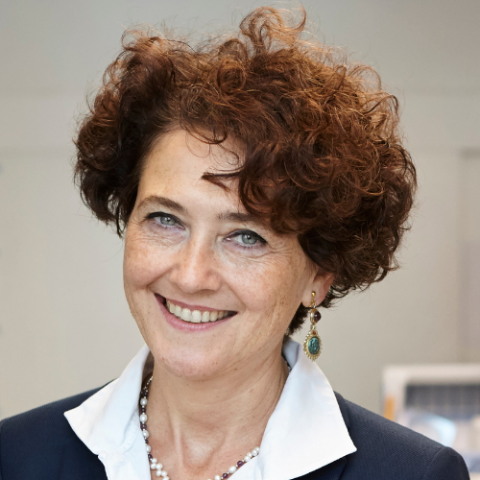 Professor Edith Heard is the Director General of EMBL and Chair of Epigenetics and Cellular Memory at the Collège de France. Professor Heard is a geneticist and developmental biologist, who has made many important contributions to the emerging field of epigenetics through her work on one of its most classic examples, X-chromosome inactivation.
Professor Edith Heard is the Director General of EMBL and Chair of Epigenetics and Cellular Memory at the Collège de France. Professor Heard is a geneticist and developmental biologist, who has made many important contributions to the emerging field of epigenetics through her work on one of its most classic examples, X-chromosome inactivation.As well as developing new techniques for imaging DNA and genetic processes in cells, Professor Heard discovered that the X chromosome is inactivated twice during embryonic development – a discovery that has important implications for stem cell research, as it implies that cells have plasticity. She has been awarded several prizes and awards.
PROFESSOR EWAN BIRNEY
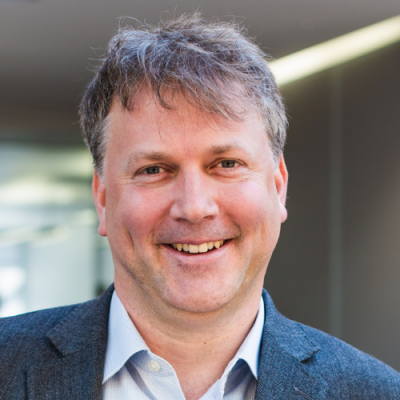 Professor Ewan Birney is Deputy Director General of EMBL and Director of the European Bioinformatics Institute (EMBL-EBI) with Dr Rolf Apweiler, and runs a small research group. Professor Birney led the analysis of the Human Genome gene set, mouse and chicken genomes and the ENCODE project, focusing on non-coding elements of the human genome. His main areas of research include functional genomics, DNA algorithms, statistical methods to analyse genomic information and use of images for chromatin structure. Professor Birney is a non-executive Director of Genomics England, and a consultant and advisor to a number of companies.
Professor Ewan Birney is Deputy Director General of EMBL and Director of the European Bioinformatics Institute (EMBL-EBI) with Dr Rolf Apweiler, and runs a small research group. Professor Birney led the analysis of the Human Genome gene set, mouse and chicken genomes and the ENCODE project, focusing on non-coding elements of the human genome. His main areas of research include functional genomics, DNA algorithms, statistical methods to analyse genomic information and use of images for chromatin structure. Professor Birney is a non-executive Director of Genomics England, and a consultant and advisor to a number of companies.
MS PLAMENA MARKOVA-ANDERSON
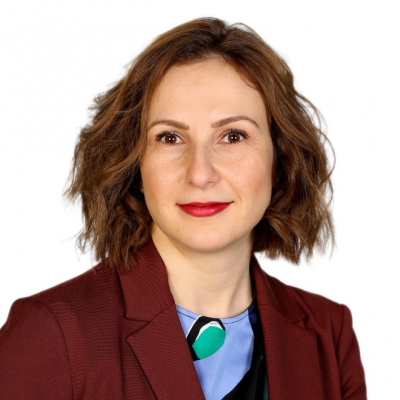 Plamena Markova-Anderson is the Head of Government and EU Relations at EMBL. She has a background in international relations and public international law, and has more than 10 years of experience in the NGO, IGO and public relations sectors. In her position at EMBL, she is responsible for relations with member states and oversees a large network of strategic partnerships.
Plamena Markova-Anderson is the Head of Government and EU Relations at EMBL. She has a background in international relations and public international law, and has more than 10 years of experience in the NGO, IGO and public relations sectors. In her position at EMBL, she is responsible for relations with member states and oversees a large network of strategic partnerships.UNIVERSITIES AUSTRALIA
PROFESSOR JOHN CARROLL
 Professor John Carroll obtained his PhD from the University of Adelaide before moving to the MRC Experimental Embryology Unit in London. He joined University College London (UCL) in 1996 and became Director of the UCL Division of Biosciences in 2007. Since moving to Monash in 2012, Professor Carroll has led the formation of the Monash Biomedicine Discovery Institute. His research focusses on understanding the mechanisms of oocyte development, maturation and fertilisation in mammals. His laboratory is known or using live cell imagery to address questions that improve understanding of oocyte polarity, the control of meiosis and the fidelity of chromosome segregation in the oocyte and early embryo. His research has been funded by long-term MRC Programme Grants and the ARC, and the results published in leading journals, including Nature Cell Biology, Science, Developmental Cell, Development and Journal of Cell Biology
Professor John Carroll obtained his PhD from the University of Adelaide before moving to the MRC Experimental Embryology Unit in London. He joined University College London (UCL) in 1996 and became Director of the UCL Division of Biosciences in 2007. Since moving to Monash in 2012, Professor Carroll has led the formation of the Monash Biomedicine Discovery Institute. His research focusses on understanding the mechanisms of oocyte development, maturation and fertilisation in mammals. His laboratory is known or using live cell imagery to address questions that improve understanding of oocyte polarity, the control of meiosis and the fidelity of chromosome segregation in the oocyte and early embryo. His research has been funded by long-term MRC Programme Grants and the ARC, and the results published in leading journals, including Nature Cell Biology, Science, Developmental Cell, Development and Journal of Cell Biology
PROFESSOR SARAH RUSSELL
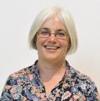 Professor Sarah Russell has a background in immune cell signalling, particularly T-cell development and fate determination. Her research interest is in the control of cell fate determination and leukemogenesis by polarity, asymmetric cell division and the tumour suppressor proteins of the Scribble family. She has expertise in microscopy and image analysis, particularly time-lapse microscopy, quantitative image analysis and super-resolution microscopy.
Professor Sarah Russell has a background in immune cell signalling, particularly T-cell development and fate determination. Her research interest is in the control of cell fate determination and leukemogenesis by polarity, asymmetric cell division and the tumour suppressor proteins of the Scribble family. She has expertise in microscopy and image analysis, particularly time-lapse microscopy, quantitative image analysis and super-resolution microscopy.
ASSOCIATION OF AUSTRALIAN MEDICAL RESEARCH INSTITUTES
PROFESSOR ELIZABETH HARTLAND
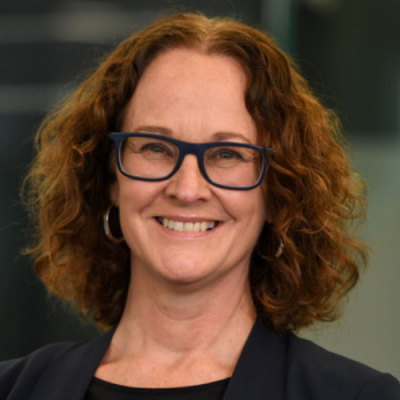 Professor Elizabeth Hartland is a national and international leader in the field of microbiology and immunology and Director and CEO of the Hudson Institute of Medical Research. Trained as a microbiologist, her work aims to combat microbial drug resistance through the development of anti-infective agents and immune-enhancing therapies that target the infection process. Professor Hartland is the author of more than 150 research publications, an accomplished research supervisor and has received a number of awards for her research.
Professor Elizabeth Hartland is a national and international leader in the field of microbiology and immunology and Director and CEO of the Hudson Institute of Medical Research. Trained as a microbiologist, her work aims to combat microbial drug resistance through the development of anti-infective agents and immune-enhancing therapies that target the infection process. Professor Hartland is the author of more than 150 research publications, an accomplished research supervisor and has received a number of awards for her research.
Professor helen thomas
 Helen Thomas is Head of the Immunology and Diabetes Unit and an Associate Director of St Vincent’s Institute in Melbourne. Her research is focused on prevention of type 1 diabetes. She aims to protect the insulin-producing cells in the pancreas from being destroyed by the immune system. Her work is being applied to humans through the transplantation of human islets from organ donors to reverse diabetes and in testing JAK inhibitors to inhibit autoimmunity in type 1 diabetes. She is Scientific Director of Effica Biolabs, a contract research organisation that collaborates with industry to test immune modulatory drugs in pre-clinical models for potential use in future clinical trials for type 1 diabetes. Helen strives to have a positive impact on the young scientists that she supervises and mentors.
Helen Thomas is Head of the Immunology and Diabetes Unit and an Associate Director of St Vincent’s Institute in Melbourne. Her research is focused on prevention of type 1 diabetes. She aims to protect the insulin-producing cells in the pancreas from being destroyed by the immune system. Her work is being applied to humans through the transplantation of human islets from organ donors to reverse diabetes and in testing JAK inhibitors to inhibit autoimmunity in type 1 diabetes. She is Scientific Director of Effica Biolabs, a contract research organisation that collaborates with industry to test immune modulatory drugs in pre-clinical models for potential use in future clinical trials for type 1 diabetes. Helen strives to have a positive impact on the young scientists that she supervises and mentors.
professor jennifer stow
 Jennifer Stow is molecular cell biologist, known nationally and internationally for her work in protein trafficking in macrophages and epithelial cells. Professor Stow is an Associate Member of EMBO and past President of the Australia and New Zealand Society for Cell and Developmental Biology. She is currently an NHMRC Research Leadership Fellow, Group Leader and former Deputy Director of Research at the Institute for Molecular Bioscience, The University of Queensland. Her research has employed innovations in microscopy and live cell imaging to uncover endocytic and secretory compartments and signalling pathways essential for cell polarity, cytokine secretion, innate immunity and inflammation.
Jennifer Stow is molecular cell biologist, known nationally and internationally for her work in protein trafficking in macrophages and epithelial cells. Professor Stow is an Associate Member of EMBO and past President of the Australia and New Zealand Society for Cell and Developmental Biology. She is currently an NHMRC Research Leadership Fellow, Group Leader and former Deputy Director of Research at the Institute for Molecular Bioscience, The University of Queensland. Her research has employed innovations in microscopy and live cell imaging to uncover endocytic and secretory compartments and signalling pathways essential for cell polarity, cytokine secretion, innate immunity and inflammation.
CSIRO
PROFESSOR SUSIE NILSSON
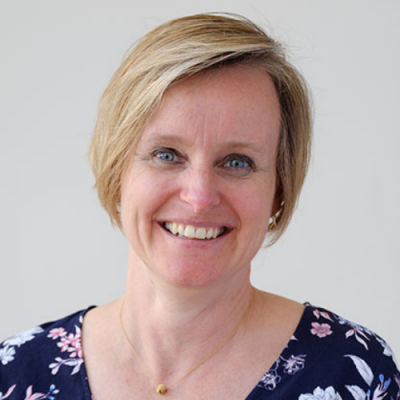 Professor Susie Nilsson is the Biology Group Leader, Biomedical Manufacturing Commonwealth Scientific and Industrial Research Organization (CSIRO) and holds an adjunct position at the Australian Regenerative Medicine Institute (ARMI), Monash University. Her current role sees broad scientific contributions, including overseeing the production of biologics for Phase I clinical trials and the building of a new cGMP facility for producing products in mammalian systems for Phase I and II/III clinical trials. Her research focuses on conducting extensive cellular, molecular and functional analyses of blood stem cells, their progeny and their bone marrow microenvironment. Professor Nilsson aims to use these findings to improve human health, particularly in the areas of bone marrow transplant, stem cell mobilisation and haematopoietic disorders, such as leukaemia and bone marrow failure.
Professor Susie Nilsson is the Biology Group Leader, Biomedical Manufacturing Commonwealth Scientific and Industrial Research Organization (CSIRO) and holds an adjunct position at the Australian Regenerative Medicine Institute (ARMI), Monash University. Her current role sees broad scientific contributions, including overseeing the production of biologics for Phase I clinical trials and the building of a new cGMP facility for producing products in mammalian systems for Phase I and II/III clinical trials. Her research focuses on conducting extensive cellular, molecular and functional analyses of blood stem cells, their progeny and their bone marrow microenvironment. Professor Nilsson aims to use these findings to improve human health, particularly in the areas of bone marrow transplant, stem cell mobilisation and haematopoietic disorders, such as leukaemia and bone marrow failure.Ms ERICA KNEIPP
 Erica Kneipp’s experience spans several decades of work at all levels of government, and in the private and not-for-profit sectors, supporting healthcare delivery and life sciences in Australia. Erica joined CSIRO, Australia’s National Science Agency, in 2021 as the Research Director for Human Health. Her portfolio encompasses infectious disease, diagnostics, nutrition and public health, and pre-clinical analytics and clinical trials. Prior to that, she was with the Australian National University, serving as the Head of Research Strategy for health and medicine. She is on the Board of Brandon BioCatalyst and the National Centre for Indigenous Genomics and a graduate and member of the Australian Institute of Company Directors.
Erica Kneipp’s experience spans several decades of work at all levels of government, and in the private and not-for-profit sectors, supporting healthcare delivery and life sciences in Australia. Erica joined CSIRO, Australia’s National Science Agency, in 2021 as the Research Director for Human Health. Her portfolio encompasses infectious disease, diagnostics, nutrition and public health, and pre-clinical analytics and clinical trials. Prior to that, she was with the Australian National University, serving as the Head of Research Strategy for health and medicine. She is on the Board of Brandon BioCatalyst and the National Centre for Indigenous Genomics and a graduate and member of the Australian Institute of Company Directors.
BIOPLATFORMS AUSTRALIA
MR ANDREW GILBERT
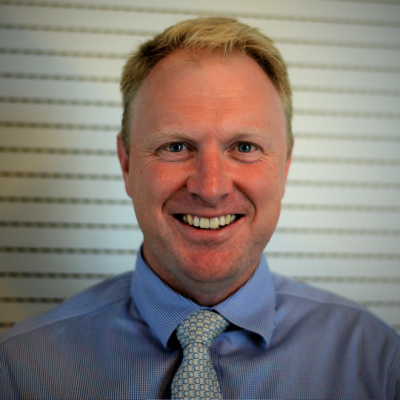 Andrew Gilbert is the General Manager of Bioplatforms Australia, overseer of a $150 million Commonwealth Government research infrastructure investment in the discovery sciences of genomics, proteomics and metabolomics. In addition to managing the national infrastructure network (which supports 4500 users per annum across the spectrum of pure research to commercial production), Bioplatforms Australia has catalysed the formation of a series of strategic national scientific collaborations – in the broad themes of wheat productivity and quality, Great Barrier Reef genomic surveying, wine characterisation and development, native fauna sequencing and melanoma biology. Prior to his current endeavours, Andrew was the Commercial Manager for Life Therapeutics and involved in a broad range of activities surrounding the commercialisation of cutting-edge biotechnology developments.
Andrew Gilbert is the General Manager of Bioplatforms Australia, overseer of a $150 million Commonwealth Government research infrastructure investment in the discovery sciences of genomics, proteomics and metabolomics. In addition to managing the national infrastructure network (which supports 4500 users per annum across the spectrum of pure research to commercial production), Bioplatforms Australia has catalysed the formation of a series of strategic national scientific collaborations – in the broad themes of wheat productivity and quality, Great Barrier Reef genomic surveying, wine characterisation and development, native fauna sequencing and melanoma biology. Prior to his current endeavours, Andrew was the Commercial Manager for Life Therapeutics and involved in a broad range of activities surrounding the commercialisation of cutting-edge biotechnology developments.
DEPARTMENT OF EDUCATION, SKILLS & EMPLOYMENT
A seat on the EMBL Australia Council is reserved for a representative from the Department of Education, Skills & Employment.